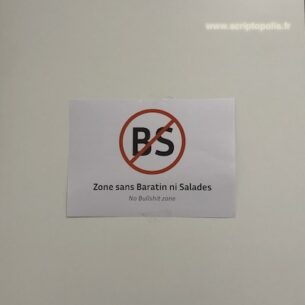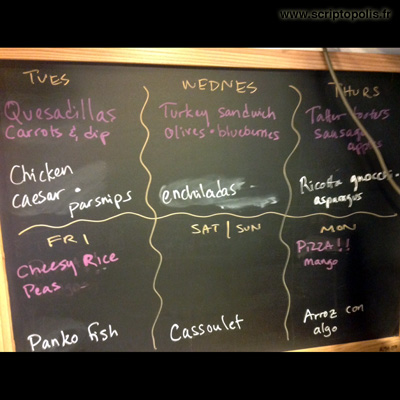Planification
Western Massachussets, May 2014
Feminism has pushed to treat domestic space as a workspace. Tasks that take place there are certainly not usually paid but they consume a significative part of waking hours, and primarily those of women. Despite multiple investigations into their distribution within families, the lack of recording, tracking and measurement devices remains an obstacle to their recognition.
Yet when we look carefully inside a home, there are constantly written traces of these activities: shopping lists, family ephemeris, calendars filled with appointments. But here, there is no need for careful attention: the big board is clearly visible in the kitchen, announcing the menu of the week for lunches in purple, for dinners in white. Even if they are not written, it is easy to imagine the subsequent tasks: shopping picking vegetables, preparing food, cleaning utensils.
Everything is planned but for the weekend: only one dish, cassoulet, is registered. Is it because the family goes out or because, as there is some “free time” they don’t have to worry in advance about cooking?







